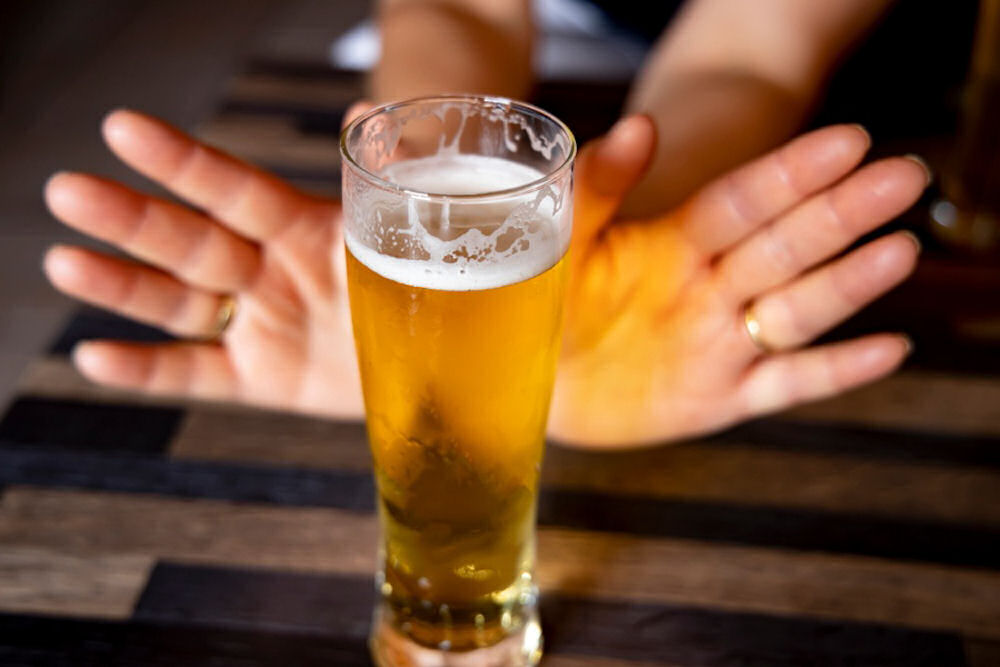Alcohol remains the one thing that, despite state regulations, remains the number one cause of death, disease, and disastrous accidents in the US. On top of that, alcohol also claims the underage population as being among its many victims, with teenagers as young as 12 years old already actively engaged in chronic alcohol intake. This is why more and more public information campaigns are being made about why young people should not give in to peer pressure to drink, regardless of the scenario.
What Is the Role of Peer Pressure in Underage Drinking?
Everyone would attest to the fact that a person’s teenage years are among the most turbulent and chaotic periods of their lives. The onset of hormones, growing pains, and social awkwardness all combine to make a teenager’s life very stressful. In most cases, it is stressful enough to make them open to any kind of solution to deal with what they are going through. The problem with this is that in most cases, the solution comes in the form of substance use. As teenagers are particularly susceptible to suggestions and temptations, given that they are in a very confusing phase of life.
Capitalizes on Teenage Vulnerability
Even with all the scientific knowledge gained through studies explaining why they are going through such a confusing state, teenagers still suffer from the hormonal changes happening in their bodies. The growing pains they experience make teenagers particularly vulnerable, making them easy targets for anyone whose idea of a solution comes in the form of alcohol or drugs.
As teenagers are already more than willing to find something to end the miserable and confusing phase they are in, it would be quite easy to push them into getting alcohol. The numbness provided by the sedative properties of alcohol provides teenagers with a brief respite from what they are feeling. Soon enough, they rely on it to deal with whatever problems they come across. This can lead to alcohol addiction. If you suspect someone having signs of being an alcoholic, contact Free by the Sea in Ocean Park to get assistance from our alcohol rehab program in Washington.
Feeds the Prevailing Curiosity
The curiosity that many young people felt as a burgeoning thing during their adolescence only gets stronger as they grow into their teenage years. This curiosity covers everything they come across, even with experimentation of substances. Some might begin to get an interest in things that they could grow to love, such as sports or the arts, while others feed their curiosity with alcohol and eventually develops alcoholic personalities.
This curiosity is also largely fed by what teenagers see during family reunions or gatherings, where the adults would regularly consume alcohol. This gives young adults the impression that imbibing alcohol is perfectly normal and completely safe. Sadly, not many families have adults who are mindful enough to have a talk with the younger members of the family regarding alcohol and illegal substance use. Some individuals believe that “what doesn’t kill them makes them stronger”. This belief has always led to disastrous results for the younger generation.
Organic Push Alongside Advertising Campaigns
Popular media has always been an immensely strong influence on how consumers act. Generation after generation buys into the messaging embedded in creative advertising and marketing campaigns. This can’t be helped as the only goal of advertising is to make consumers buy whatever is being advertised. The only problem with this is that the moral dilemma that comes with consumables such as alcohol is often overridden by peer pressure. Those who are already hooked on alcohol do their best to get the younger ones hooked on it as well.
While there are messages in most of the advertising campaigns advising consumers to “drink responsibly” and “don’t drink and drive”, the way these warnings are crafted only makes them appear as afterthoughts and are barely noticeable in any campaign. These warnings are also further drowned out by the same peer pressure that pushes teenagers over the edge should they still be on the fence regarding the notion of drinking.
Personal Testimonials Gone Wrong
Most teenagers will seek help for the inner conflict and confusion they feel, although they are more likely to seek this help from their peers rather than from the adults in their family. Should these peers also be the type that is already into alcohol and drugs, there is a very high likelihood that the teenagers in need of help would take after them, thinking that if it’s good enough for these people, then it should also be good for them as well.
The sad thing about this is that there are actually peers of the troubled teenagers that have sympathy for what they are going through. However, because these peers found their own solution in the form of alcohol, they are also inclined to share this solution with their friends who might be needing help.
Peer Advice Appeals Better to Peers
It is no secret that even the best advice coming from family elders often becomes nothing more than sermons and “attempts at control” to the troubled teen, as they try to find a solution that resonates with what they feel. This all boils down to how the advice is delivered to the troubled teenager. In many cases, adults will give the textbook advice of staying away from substances even when the teenagers feel so bad that they are willing to try anything.
The scenario will definitely get worse if the troubled teenager turns to peers with whom they relate better, and this peer gives them advice that inevitably includes alcohol use in it. Troubled teenagers will not really care even if the adult is speaking from the point of view of experience if they receive advice that sounds more like condescension rather than the words of someone who really cares.
Troubled People Relate More With Peers
In many cases, a teenager will get into substance abuse not because they were pushed into it by peers, but because they learned that it is how their peers dealt with their own troubles. It is not uncommon for teens in the US to experience abuse, neglect, or things that they should not be exposed to at their age. The stigma that comes with going through these things will often prevent a teenager from seeking help for what they are experiencing. These teens will instead pick up on how their peers deal with their own similar issues, and for a lack of anything better, they will more often than not decide to emulate this.
The problem with this is that because they decided that alcohol appears to be enough for them to deal with whatever they are currently going through, they will continue to do so and even refuse to find any other help for their troubles apart from this. This kind of thinking makes rehab in Washington state even more difficult because these troubled teens will grow up believing that they already have the best solution to life’s problems.
A Ditch Teens Could Not Climb Out Of
One of the worst things a teenager could ever go through is to fall in with the wrong crowd. This is not to say that underachievers or peers who grew up in poverty are the ones identified as the wrong crowd, but there are many teenagers who have already taken to a life of crime even at a very young age. This could be because of their environment, or because they had no choice but to engage in criminal activities or these teenagers could very well have been born into it and thought they had no alternative.
Regardless of the reason for being underage criminals, these teenagers will often lead a lifestyle that many would find to be desirable, and go so far as to try to join them. Once they are in, they soon find that getting out of the group is next to impossible. These teenagers could have already witnessed criminal acts committed by the group. Some of these teenagers were already threatened by members of the group and told that they have to stay as they are already complicit in the group’s activities. These activities also necessarily included underage drinking and even substance abuse.
How Could Teens Avoid Peer Pressure to Drink?
Truth be told, peer pressure is just one of the causes of underage drinking. Every day different people go through different circumstances that stress them out or pressure them so much that it could wear them down to the point they would give in to whatever “helpful advice” they see just to cope with the difficulty. The answer to this is to determine the best things to do when these circumstances arise so that the person is not put into a situation where they believe they don’t have a choice but to drink.
Stress is a catchphrase that is immensely popular with people today, even teenagers. The problem is that what many people consider to be tolerable stress is already horrendous to some, and this kind of mentality is also the type to be highly likely to be pressured into getting into alcohol or substance abuse.
Find Activities That Don’t Stress You Out
There are activities that don’t just train the body, but the mind as well. This is why most community development programs will always have a provision for the inclusion of sporting events. Sports will not only teach a person about healthy competition, but it will also imbue a person with the needed coping mechanisms to deal with stress.
The same could be said about getting into the arts. While art forms are not necessarily for competition, they are for exhibition, where the creator takes pride in what was accomplished. In most cases, trying to finish the art form is frustrating and difficult, but in most, art is therapy. The idea of what would come out once it is finished is more than enough to help the artist in coping with stress.
Be Mindful of the Company You Keep
Being with other people, for the most part, is still a choice. The nature of these people, regardless of their efforts to hide what they really are, will come out soon enough given enough time. The realization of what these people truly are is immensely important in deciding if these are people that are worth hanging around with, or if they are the type that could be hazardous to a person’s health.
It goes against logic to stay with people that would inevitably influence anyone around them to get into illegal activities or things that would be regrettable later on. Staying with people like this is highly irresponsible, and will nullify any argument that involves blaming them for getting into trouble later on. Getting into underage drinking is actually the least of possible concerns that might result from associating with the wrong kind of crowd. It is best to seek help from group therapy sessions or support groups such as Alcoholics Anonymous instead.
Establish a Healthy Understanding With Peers
Even in teenage groups, there should be a measure of respect between peers. This includes respecting the wishes of peers who already have indicated that they don’t have the inclination to drink. This is important to understand as there are group members who feel disrespected if they offer someone alcohol or drugs and they get refused. While these people might feel disrespected, they should know that they should respect the wishes of the person who refused their offer.
Peers who understand this mutual form of respect are the ones that are worthy of being with. Because they find no offense in those who refuse their offer and respect their wishes not to partake.
Build an “Emergency Signal” With Family
In most cases, the most difficult part of not giving in to peer pressure to get into underage drinking is saying no. It could put teenagers in a very awkward situation if they simply refuse outright, and it is not uncommon for some people to find offense at this. In cases like this, it would be a good idea to involve parents, older siblings, or relatives who come and get the teenager as a form of “escape option”.
This will save the one offering alcohol from embarrassment and could be seen as a gracious way out of the situation. The presence of someone older could also diffuse any tension that might be caused if the one offering alcohol appears to not be the type to take no for an answer. Work out an “emergency signal” with a member of the family who could come and provide the escape option. The signal needs to be subtle enough so that it is not an obvious getaway attempt.
Muster the Confidence Needed to Not Feel Pressured
In instances where an outright invitation is not needed and everyone is welcome to join an event or party, the peer pressure to drink often comes from fellows who find amusement in testing the confidence of others. As a juvenile, as it might sound, daring someone to have a drink or even several drinks, is still an effective way to see just how foolhardy a teenager is willing to become.
Someone with enough confidence, however, will not feel the pressure to give in to such dares, regardless of how much they are being goaded into it. The confidence should also be more than enough to resist what follows after the attempts at goading, which is shaming. Having failed at daring a fellow to drink, some might try to shame the person instead, citing weakness, cowardice, and other derogatory slurs to incite a reaction. A teenager with enough confidence to weather the shaming will inevitably turn the tables on the ones doing the goading and leave them utterly frustrated that they failed.
Engage in Mental Fortitude Exercises
When the person is trying to goad another person into doing something, perceived points of weakness are often used to wear down the confidence and determination of the person being goaded, so that they give in to whatever the dare is. It could be a matter of pride, a personal insult, or anything that could work to break down the resolve of the person being challenged. While there are some people that this attempt would never work, there is also a vast majority of others who would give in just after a few insults.
What is important here is to have the mental fortitude to maintain the position that there will be no giving in to drinking regardless of what is said. Much like some of the practices in desensitization done in anger management, the objective here is to maintain a mind clear enough to understand that the taunts and insults are reflections of the other fellow’s flagging confidence. Their confidence is in serious danger of being shaken the more the person refuses to give in to the dares, and this in itself is already a victory for the one refusing to drink.
Forward Planning Goes a Long Way
In most events, it is usually possible to get a mental picture of who the participants are, what might happen there, and the likelihood of alcohol being present at the venue. The combination of alcohol and the type of people at the event could be a strong indicator of the occurrence of peer pressure into drinking. There is also the matter of what kind of event is happening, as it is practically a given that a fraternity or birthday party is bound to have plenty of alcohol going around.
Equipped with this knowledge, a teenager looking to attend could already plot out contingency measures to avoid having to drink at the venue, or if not drinking is just not possible given the circumstances, perhaps it would be best to avoid going to the event at all. Avoidance and prevention will always be much better options in scenarios that could turn disastrous with going to them.
Explore the Best Ways to Freedom From Alcohol at Free by the Sea
There is no shame in taking the path of prevention to avoid the possibility of being hooked on dangerous substances or alcohol. In the event that prevention is not possible, it is never too late for recovery. The first step, however, is to want to recover, and if you are willing to put in the work, then we here at Free By the Sea are more than happy to help you back to sobriety.
It will not be easy, and we don’t use the word “work” as a metaphor, because that is what it will feel like as you take the road to recovery. Be assured, however, that we will be beside you every step of the way. Talk to us now.

Dr. Richard Crabbe joined our team in 2019 as our psychiatrist and medical director. He attended the University of Ghana Medical School where he became a Medical Doctor in 1977. From 1978 through 1984, he was a medical officer in the Ghana Navy and provided a variety of services from general medicine to surgeries. He received his Certificate in General Psychology from the American Board of Psychology and Neurology in 2002.





